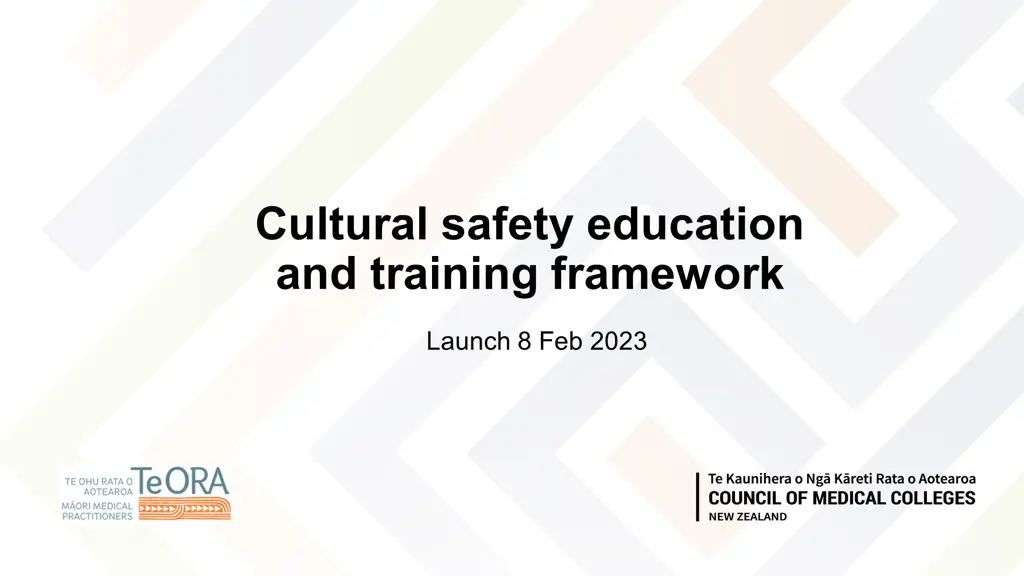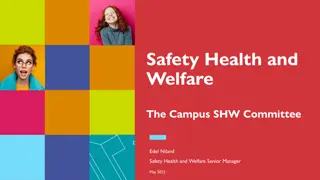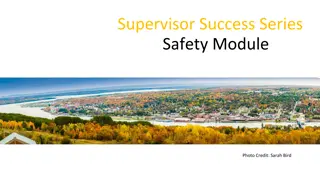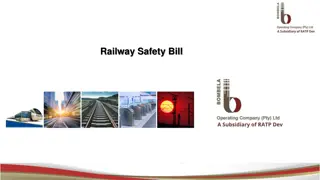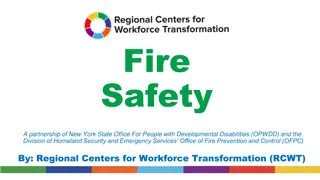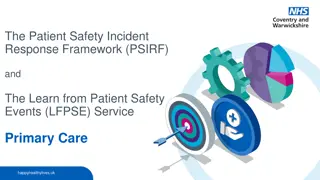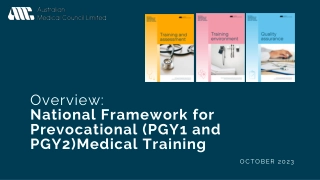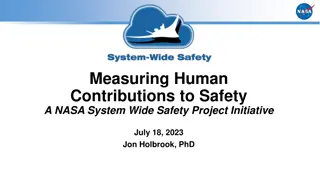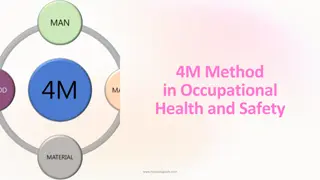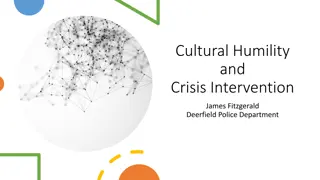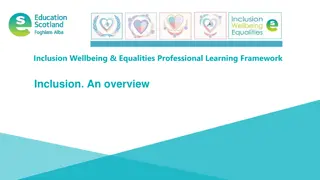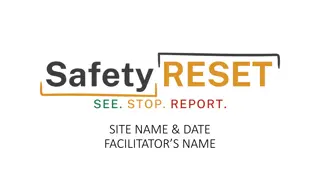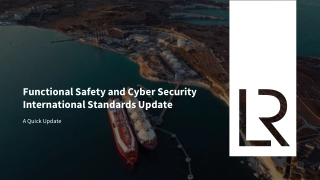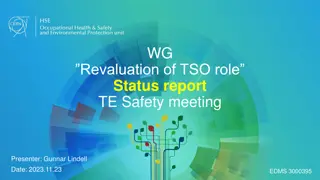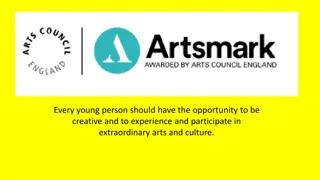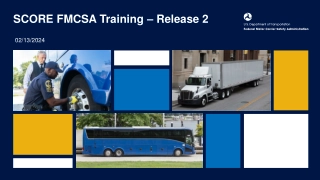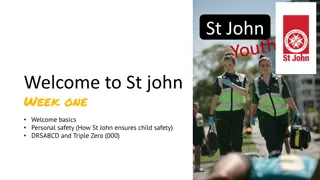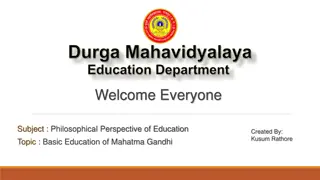Cultural safety education and training framework
The Cultural Safety Education and Training Framework, focusing on Maori health outcomes, critical reflection, and patient care improvement. Learn the importance of cultural competence legislation and standards for effective healthcare practices.
Download Presentation
Please find below an Image/Link to download the presentation.
The content on the website is provided AS IS for your information and personal use only. It may not be sold, licensed, or shared on other websites without obtaining consent from the author. Download presentation by click this link. If you encounter any issues during the download, it is possible that the publisher has removed the file from their server.
Presentation Transcript
Cultural safety education and training framework Launch 8 Feb 2023
Launched 8 Feb 2023 Te Raukura, Wharewaka
Te Kawa Whakaruruhau Nursing did it first Getting the best outcomes for M ori Dr Irihapeti Ramsden
Te Kawa Whakaruruhau Nursing education approach Our own stuff not about others Critical consciousness and reflective practice Power relationships Patient rights Dr Irihapeti Ramsden
The Medical Journey 1980s 2020s 2000s You could be sensitive to M ori need You must You should up your game with M ori patients know how your attitudes and biases affect outcomes
The Medical Journey Knowledge base Skills and behaviours Self-reflective practice Hauora M ori
Cultural Competence Legislation The Health Practitioners Competence Assurance Act 2003 Section 118(i) standards of clinical competence, cultural competence and ethical conduct Health Practitioners Competence Assurance Amendment Act 2019 standards of clinical competence, cultural competence (including competencies that will enable effective and respectful interaction with M ori), and ethical conduct
Cultural Competence Standards (2016) Partnership with Te ORA Two major national symposiums
Cultural Safety (2019) International Journal for Equity in Health (2019)18:174
Cultural Safety (2019) A how to pathway for using cultural safety to effect M ori health equity
Cultural Safety (2020) Robust data Racism and P keh privilege Partnerships with M ori Workforce recruitment Self-reflection - culturally-safe practice Cultural loading on M ori doctors
Cultural Safety (2021) M ori in College governance? M ori employees? Budget for M ori projects? Training programmes? Cultural safety policy? Numbers of M ori trainees? Experience of cultural safety? Cultural loading
Cultural Safety (2023) Mostly cultural competence Hauora Maori and Cultural Competence integrated Mixture of teaching methods No standard assessment Cultural Competence, Cultural Safety and equity not understood Position statement crucial
Hot off the Press (Nov, 2022) Effective and respectful interaction with M ori: How the regulators of health professionals are responding to the HPCA Amendment Act 2019 Susan Shaw, Keith Tudor NZMJ 136(1569) Medical-Physio-OT-Midwifery-Paramedics-Nursing-RadTech- Dental-Osteopathy-Pharmacy-Optomerty-Chiropractic- Dietitan-MedSciences-Psychology-Podiatry-Psychotherapy
Cultural Safety Training Plan (2023) To provide the foundation for vocational medical college education and training programmes that support practitioners to undertake culturally safe practice in their medical specialty.
Developing the training plan 1. Review of literature 2. Interviews with medical colleges 3. consumer reference group consultation 4. Testing and refining Team: David Tipene-Leach, Shirley Simmonds, Marnie Carter (Allen+Clarke), Helena Haggie, Mataroria Lyndon, Virginia Mills
Conceptual framework for optimal health for M ori in Aotearoa
Definitions Cultural competence Culturally competent medical practitioners have a skills base that includes: Working effectively within cross-cultural contexts Using a definition of culture that is wider than ethnicity ie other social groups defined by their behaviours, beliefs and values. Cultural safety Hauora M ori All medical practitioners have a knowledge base that includes: The historical and contemporary M ori health situation M ori health models M ori engagement practices Adequate te reo M ori The diversity of M ori beliefs, values and experiences. Culturally safe medical practitioners have a critical consciousness that includes: Self-reflection on their own biases, attitudes, assumptions, stereotypes and prejudices Self-reflection on wider structures and characteristics that may affect their practice.
Proficiencies Culturally safe practice: 1. Engage in ongoing development of critical consciousness 2. Examine and redress power relationships 3. Commit to transformative action 4. Ensure that cultural safety is determined by patients and communities served
Enabling Proficiencies, Teaching Methods, and Assessment
Implementation points to consider: This is an Aotearoa context Cultural safety of college organisations and their environments Curriculum development contextualising to each college Delivery of training educator workforce Avoiding cultural overload
Issues - training What training activities are currently taking place In your college? In your work place? In your personal practice? Do they include cultural safety?
Issues - training M ori health and cultural competence not implemented in some colleges. Is Hauora M ori/cultural competence a generic programme with tweaks for different colleges? Is cultural safety a separate programme? Who develops cultural safety training? External advice? Assessment and monitoring: Fun, easy and necessary The nature of compliance monitoring
Unresolved contextual issues Cultural safety gap between training and service Culturally safe behaviour: personal and organizational Cultural safety excuses: workforce fatigue and resource restriction Culturally safe environments for young M ori doctors Cultural safety and equity issues not well understood
Karawhiua! KIA KAHA
